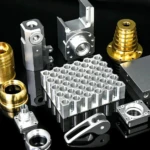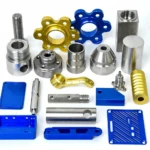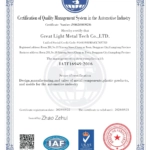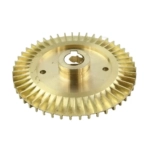In terms of CNC processing, one of the most critical factors to consider is cost. Understanding CNC cost segmentation is critical for businesses and individuals who want to manufacture precise parts. In this article, we will dig into the world of CNC machining and explore the various components that make up the total cost of this service.
First, it is crucial to understand the basis of CNC machining. CNC or computer numerical control, machining is a manufacturing process that uses computer machinery to produce precise parts. This process involves the use of advanced software and equipment to cut, drill holes and form a variety of materials, including metals, plastics and wood. The accuracy and accuracy of CNC machining makes it ideal for industries from aviation and automotive to medical and consumer products.
Now, let’s break down the CNC cost component:
- Material Cost: The cost of materials used to manufacture parts is an important part of the total cost of CNC. The type, quality and quantity of materials will all affect the final cost. For example, aluminum and steel are commonly used materials in CNC processing, but their prices vary due to their properties and availability.
- Processing time: The time required to process parts is another key factor in determining the cost of CNC. The complexity of the design, the number of operations required, and the speed of the machinery affects the machining time. More complex designs or larger parts can take longer machining time, thereby increasing costs.
- Labor costs: The expertise and time of a CNC mechanic or operator also contribute to the overall cost. A skilled operator is necessary to ensure the accuracy and quality of the parts manufactured. Labor costs may vary depending on the location, experience and efficiency of the mechanic.
- Equipment and maintenance costs: The cost of the CNC machinery itself and the conventional maintenance and maintenance are a significant investment for the manufacturer. Advanced machinery can greatly reduce production time and improve parts quality, but initially cost more.
- Programming and setup fees: Before starting processing, you must write a CNC program and set up the machinery. This process requires expertise and can be time consuming, especially for complex parts. The cost of programming and setup may vary depending on the complexity of the part and the efficiency of the setup process.
- Completion and post-processing fees: After processing, the parts may require additional treatment such as grinding, polishing or coating. These completions can increase the total cost, but are usually necessary to meet the required specifications for the part.
In summary, the CNC cost breakdown involves multiple key components including material costs, processing time, labor costs, equipment and maintenance costs, programming and setup costs, and completion and post-processing costs. Understanding these factors is crucial for businesses and individuals who want to optimize their manufacturing process and reduce costs without compromising quality. By partnering with professional CNC machining service providers such as Great Light, which provides advanced five-axis CNC machining equipment and one-stop after-processing services, customers can ensure they get high-quality precision parts at competitive prices.
FAQ
Q: What is CNC processing?
A: CNC machining is a manufacturing process that uses computer-controlled machinery to produce precise parts from a variety of materials.
Q: How to determine the cost of CNC processing?
A: The cost of CNC machining depends on several factors, including material cost, processing time, labor cost, equipment and maintenance cost, programming and setup cost, and completion and post-processing cost.
Q: What materials can be used in CNC processing?
A: A variety of materials can be used in CNC processing, including metals (such as aluminum and steel), plastics and wood.
Q: How accurate is CNC processing?
A: CNC machining is highly accurate and precise, making it suitable for the production of parts that require tight tolerances and complex geometry.
- Q: Which industries use CNC processing?
A: CNC processing is used in a variety of industries, including aerospace, automotive, medical, consumer products, etc., because it is able to produce precise parts with high accuracy and consistency.



















